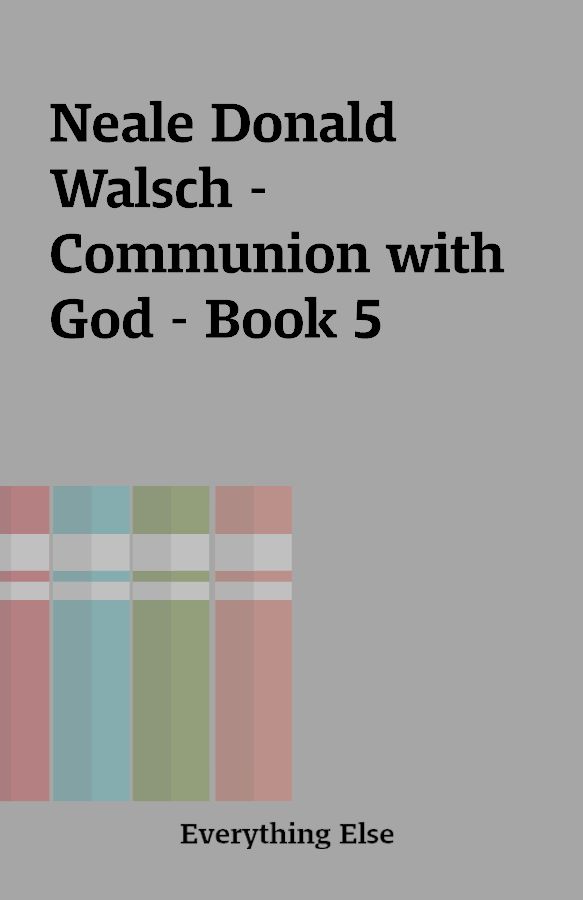Neale Donald Walsch – Communion with God – Book 5
Neale Donald Walsch – Book 5 – Communion with God1
[6CDs – 68MP3s]
Description
Bestselling author Neale Donald Walsch (Conversations with God) moves beyond showing readers how to develop a friendship with God and instead offers a model for communion. Rather than using the dialog format, where Walsch shares personal conversations he has with God, he chose to write through the narrative voice of God–as if God were speaking directly to the reader. “I tell you this: You need nothing to survive,” says God. “Your survival is guaranteed. I gave you everlasting life, and I never took it away from you.” This format can feel a bit jarring, as if this was an attempt at channeling rather than Walsch’s usual humble style of dialogue. Using a structure of top-10 illusions, Walsch has God speaking to illusions such as need, judgment, and superiority. At times God sounds scolding: “For I tell you this: Your idea of superiority could be the last mistake you ever make.” Yet, the bottom-line message is that of unconditional love and the exhilarating promise of communion–a gift that is lavishly offered throughout the final chapters. –Gail HudsonFrom Publishers WeeklyA stand-alone title to complement Walsch’s bestselling Conversations with God series, this too-general spirituality manifesto borrows from most major religions while chastising all of them for their judgmentalism, with Christianity getting the harshest treatment. Walsch continues his tradition of writing in the first person as God, but this time there is no human counterbalance, making this no longer a conversation so much as a prophetic indictment. He begins by describing the “ten illusions of man” that have been perpetuated in unhelpful “cultural stories”Ai.e., Biblical storiesAand then helps readers understand and use these illusions in an effort to make their own realities. Walsch reassures readers that such things as failure, requirement and ignorance do not actually exist, but are among the ten illusions. We are part of God, he explains, and since God is perfect, so are we. Walsch seems to believe that his ideas are groundbreaking, but they are garden-variety New Thought concepts adapted for a therapeutic age. His once-innovative technique of writing in the voice of God has also lost its luster; God’s prose is having an off day, as evidenced by Walsh’s predilection for sentence fragments and stream-of-consciousness thought patterns. A superior work in general spirituality is Andrew Harvey’s The Direct Path: Creating a Journey to the Divine Using the World’s Mystical Traditions, which is in harmony with Walsch’s declaration that “all paths lead to God” but offers outstanding writing and a more humble tone. (Oct.)Copyright 2000 Reed Business Information, Inc.
You must be logged in to post a review.






Reviews
There are no reviews yet.